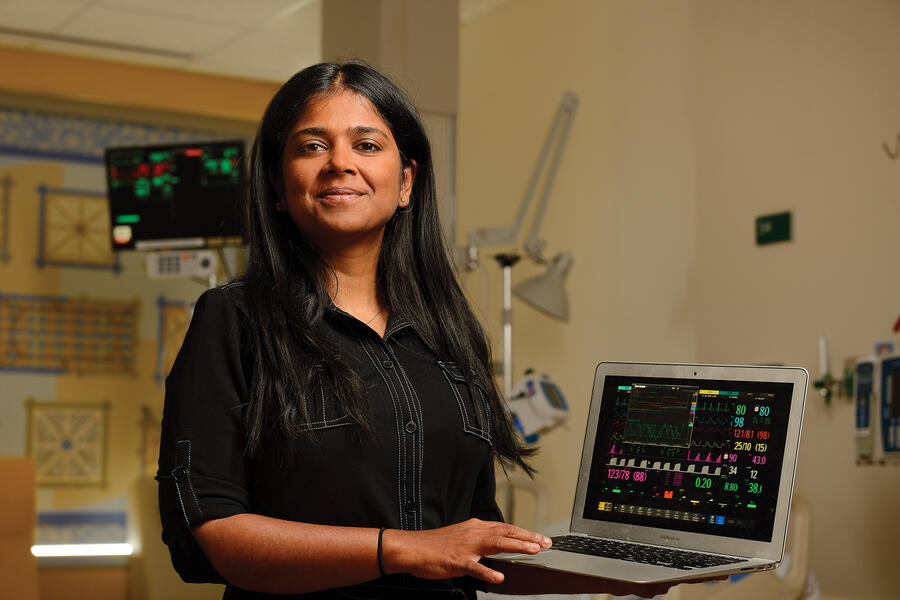
Image caption:
Greg Rienzi
Editor
'The Pitt' had me in near-constant anxiety.
The HBO Max show chronicles a 15-hour shift at the fictional Pittsburgh Trauma Medical Center, a stand-in for any number of modernday major city ERs. The series—which received 13 Emmy nominations— touts itself as an ultra-realistic depiction of the challenges facing nurses, doctors, and other hospital staff as they deal with an onslaught of medical emergencies, supply issues, red tape, and heightened human emotion. It's life and death, played out in real time.
While watching the final episodes (no spoilers here), I couldn't help but think about my upcoming conversation with Suchi Saria (p. 54), a Hopkins professor of computer science and a leader in efforts to use the power of AI and big data to improve patient outcomes in clinical settings. In fictional ERs, as in real ones, every minute matters. One patient loses blood, another fights an infection, someone else falls in and out of consciousness. And then there's the outlier: a patient whose symptoms are a mystery. The show's heroes make on-the-spot diagnoses and pivot when necessary. Saria told me even the best caregivers can be fallible and face moments of hesitation, but what if the smartest computer software could be another set of trained eyes and ears on lives that hang in the balance? For Saria, that has become her life's work. Please enjoy her story and all we offer in this issue.

Greg Rienzi
Editor
Give us your feedback by sending a letter to the editor via email to jhmagazine@jhu.edu. (We reserve the right to edit letters for length, style, clarity, and civility.)








